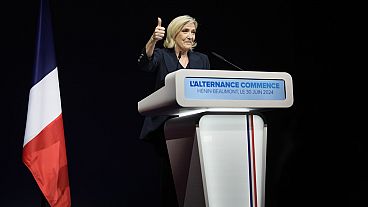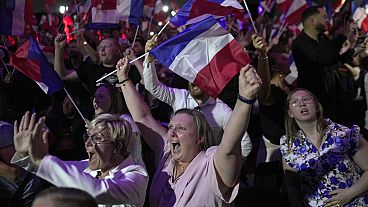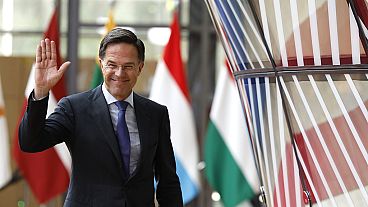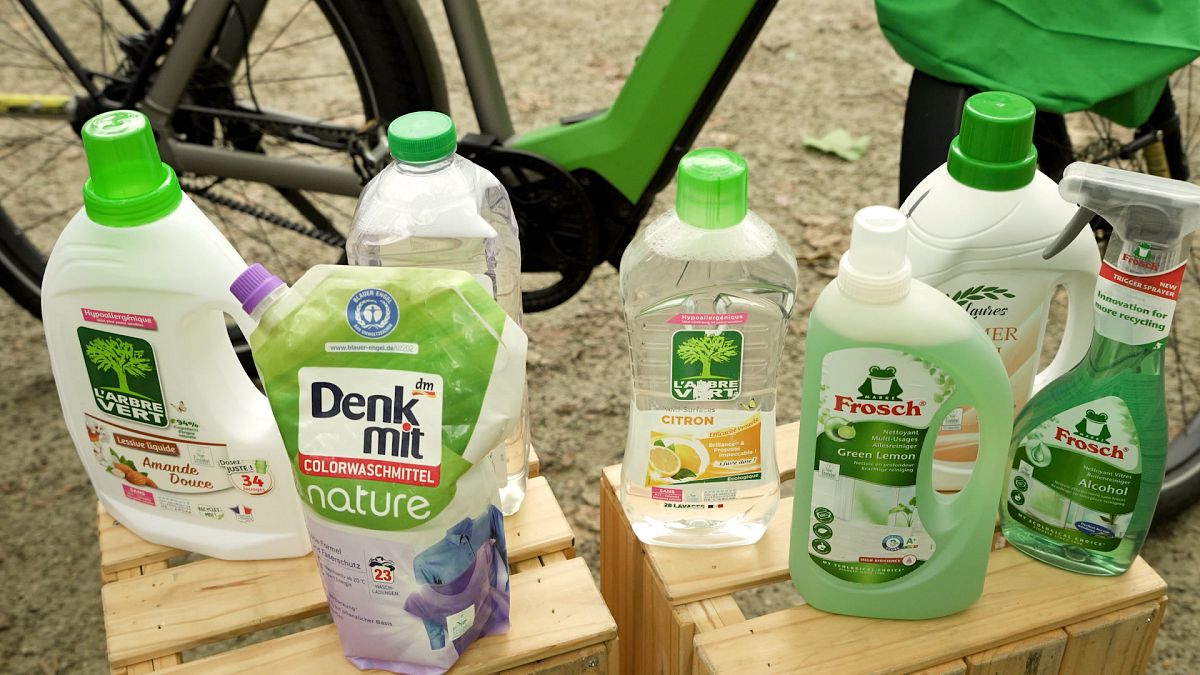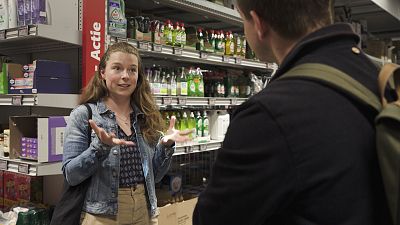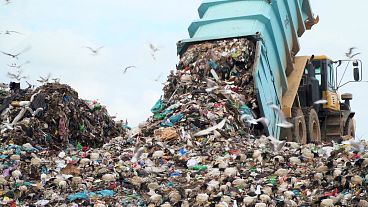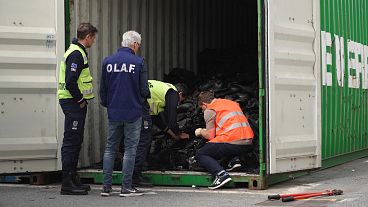New EU measures to combat 'greenwashing' are aiming to challenge companies promoting so-called sustainable products. In this episode of The Road to Green we travel across Europe to find out more about the labelling changes coming to a supermarket near you.
Greenwashing is an attempt by a company to present its products as more environmentally friendly than they are. The methods used are many and varied: unfounded use of an eco-label, vague sustainability terminology with no real meaning, and imprecise promises of carbon-friendly manufacturing.
To combat this trend, the European Union is introducing a directive designed to limit abuses and provide a better framework for the various eco-labels that have flooded the market in recent years.
Are eco-labels trustworthy?
The European Union is responding to concerns about greenwashing and fraudulent environmental claims.
In 1992, the EU Ecolabel was created to help consumers, retailers and businesses make more sustainable choices.
In March 2023, the European Commission proposed a directive to ensure that environmental claims are reliable, comparable and verifiable across the EU.
Too many labels, not enough controls
When asked about the legitimacy of the eco-labels found on the shelves of a Belgian supermarket, consumers didn't seem convinced.
"Do I trust them? Not always, frankly", admitted one customer. "We have too much information, it's hard to make sense of it all", said another.
Another shopper highlighted the opacity of the current system:"If you really want to know what impact it's going to have on the environment, you have to do some real research. It's not easy to know what each label stands for. It's very confusing."
But the rules are set to change across Europe from 2026, following the adoption of a new directive aimed at better protecting consumers against greenwashing.
Certain wordings will no longer be permitted on labels, as Miriam Thiemann, Sustainable Consumption Officer at the European Consumers' Organisation, explains:
"Very vague claims will no longer be permitted. So you won't be able to just say 'eco' or 'green', you'll have to be more specific," she said.
"You will have to be able to prove that the product as a whole is environmentally friendly and not just one of its aspects," she added.
But the EU wants to go even further. The aim is to ensure that ecological claims are systematically substantiated and verified. This is the subject of another directive still under discussion.
"The central idea is that before using a green label, a retailer must gather all the evidence to support the veracity of its claims. In addition, an independent verifier will have to ensure that the evidence is correct and sufficient to meet all the requirements of the directive", explains Miriam Thiemann, Policy Officer for Sustainable Consumption at the European Environmental Bureau.
Following the example of the European Ecolabel
For Miriam Thiemann, the European Ecolabel, created more than 30 years ago by the Commission, is the model to follow.
This certification, which has been awarded to almost 100,000 products and services in the EU, is subject to rigorous controls that guarantee compliance with environmental standards and sustainable development.
"Each company that applies for the EU Ecolabel submits all the documents to an independent verifier, who ensures that the product complies with the label's requirements," explains Thiemann.
Glowi, a leading company in Belgium's domestic cleaning sector, has chosen to have its own cleaning products certified for safety reasons.
"With future regulations, these labels are becoming increasingly important," says Judith Witters, ESG and Diversity Manager at Glowi, who acknowledges that there are too many different labels at present.
For Elly Huysmans, co-founder and co-CEO of Glowi, this certification is a win-win situation.
"At home, people use too much water and too many chemicals. That's why we wanted to change things, because what they're using is too dangerous. The impact on our company is above all the following: fewer sick people, more people at work, satisfied customers and, of course, a growing business", she explains.
Who is responsible for monitoring compliance?
In its fight against greenwashing, the EU is assisted by several European organisations that track down fraudulent claims.
Such is the case of the ACM in the Netherlands, which has made sustainability a key priority, taking action against giants in the energy and airline industries, particularly those that promote the 'carbon neutrality' of their products and services.
The ACM recently warned Booking.com, the leading holiday booking company, ahead of new EU rules.
The company's 'Sustainable Travel' badges have since been replaced on the site by a new sustainability programme based on third-party certification.
"We want to make it easier for travellers to make green choices. Third-party certifications come from a specialist body that creates a set of standards that allow an accommodation to be considered 'sustainable'," explains Danielle D'Silva, Booking.com's Head of Sustainability.
Members of this body then visit the accommodations to ensure that they meet the pre-established conditions.
"We work with a number of reputable third-party certifications. The EU Eco-label is a good example. We have 16,000 thousand certified establishments," adds D'Silva.
For Marijke Schreiner, CEO of Stayokay youth hostel, located in Amsterdam's famous Vondelpark and holder of the Ecolabel, it is a "serious certification".
"It's not greenwashing. The European rules make things more transparent and you have to prove what you're doing. It involves a lot of administration, but it's for a good cause. Otherwise, greenwashing will continue", she concludes.

